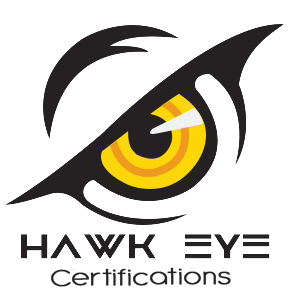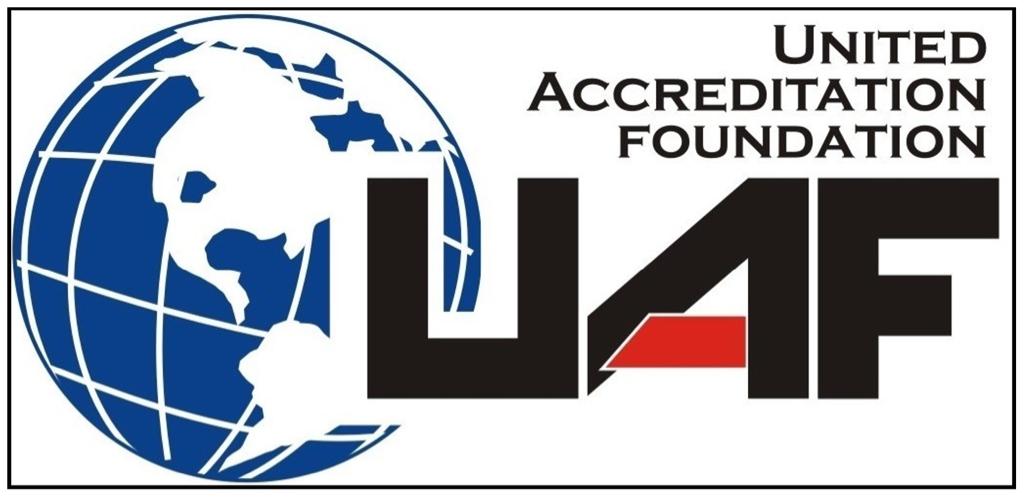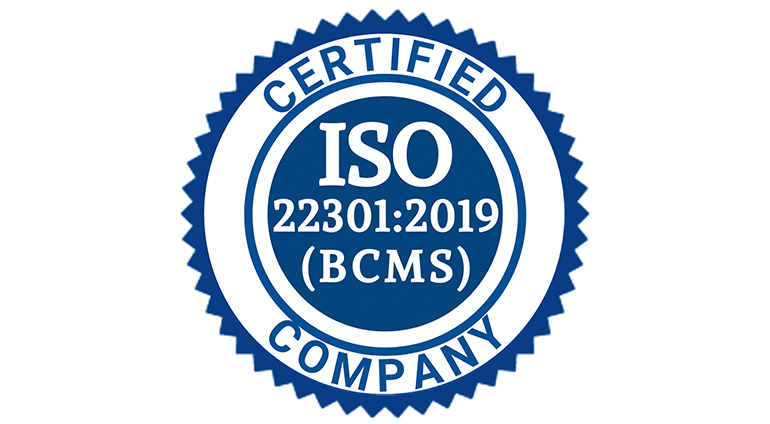ISO 22301:2019(BCMS)
Business Continuity Management (BCMS) is a management system
that helps you identify threats to your organization, to assess the level of
risk and to respond effectively; safeguarding your reputation and key business
activities. ISO 22301 Certification provides a framework to plan, establish,
implement, operate, monitor, review, maintain and continually improve a
business continuity management system. It is expected to help organizations
protect against, prepare for, respond to, and recover when disruptive incidents
arise.
ISO 22301:2019 -
Safeguarding Business Continuity with The Hawk Eye
In the ever-evolving landscape of global business,
safeguarding business continuity is not just a matter of good practice—it's a
strategic imperative. ISO 22301:2019, the international standard for Business
Continuity Management Systems (BCMS), has emerged as a crucial tool for
organizations looking to ensure their operations can withstand unforeseen
disruptions. In this comprehensive guide, we'll explore ISO 22301:2019, with a
particular focus on The Hawk Eye's expertise in providing ISO 22301
certification in India.
Understanding ISO 22301:2019
Demystifying ISO
22301:2019
ISO 22301:2019 is the international standard for Business
Continuity Management Systems. It outlines the best practices for establishing,
implementing, maintaining, and continually improving a BCMS. The primary goal
of this standard is to help organizations prepare for, respond to, and recover
from disruptive incidents effectively.
Why ISO 22301:2019
Matters
In today's fast-paced and unpredictable business
environment, the need to safeguard business continuity is evident. Whether
facing natural disasters, cybersecurity threats, or unexpected events like the
COVID-19 pandemic, organizations must be resilient and agile in the face of
disruptions. ISO 22301:2019 provides the framework to help businesses achieve
precisely that.
ISO 22301 Certification in India with
The Hawk Eye
1. Beginning with a
Commitment to Business Continuity
ISO 22301 certification starts with a strong commitment from
the top management of an organization. The Hawk Eye emphasizes the importance
of creating a culture of resilience from the highest echelons of leadership
down to every employee. A commitment to business continuity is integral to the
success of ISO 22301 certification.
2. Conducting a
Thorough Business Impact Analysis (BIA)
Before preparing for ISO 22301 certification, The Hawk Eye
guides organizations in performing a comprehensive Business Impact Analysis.
This process identifies critical functions, assets, and processes that must be
protected to ensure business continuity. It also helps determine acceptable
recovery timeframes for these critical elements.
3. Developing a
Robust BCMS
The Hawk Eye works with organizations to develop a robust
BCMS that aligns with ISO 22301:2019 requirements. This includes setting up
risk management procedures, emergency response and operations procedures, and
recovery and restoration plans.
4. Employee Training
and Awareness
Ensuring employees are well-prepared and knowledgeable is a
cornerstone of effective business continuity. The Hawk Eye emphasizes the
importance of employee training, awareness, and testing of business continuity
plans. This ensures that everyone in the organization knows their role during a
disruption.
5. Business
Continuity Testing and Exercising
The Hawk Eye conducts thorough testing and exercising of
business continuity plans to ensure they work as intended. This includes
simulating various disruption scenarios to evaluate the effectiveness of
response and recovery plans.
6. Documenting and
Record-Keeping
Proper documentation and record-keeping are integral to ISO
22301:2019 certification. The Hawk Eye ensures that organizations maintain
detailed records of their BCMS processes, tests, and improvements made over
time.
7. Internal Audits
and Reviews
The Hawk Eye conducts internal audits and regular reviews to
assess the performance and effectiveness of the BCMS. This includes identifying
areas for improvement and ensuring ongoing compliance with ISO 22301:2019
standards.
8. Engaging
Accredited Certification Bodies
To obtain ISO 22301 certification, organizations work with
accredited certification bodies. The Hawk Eye assists organizations in finding
reputable certification bodies to assess their BCMS and, when successful, grant
ISO 22301 certification.
9. Continuous
Improvement
ISO 22301 is not a one-time achievement, but a journey of
continuous improvement. The Hawk Eye promotes a culture of constant vigilance
and enhancement, ensuring organizations remain resilient in the face of
changing risks and challenges.
The Benefits of ISO 22301
Certification in India
ISO 22301 certification offers a range of advantages to
organizations operating in India, including:
Enhanced Resilience: ISO 22301 certification bolsters an
organization's ability to withstand disruptions, ensuring the continuity of
critical operations.
Reputation and Trust:
Certification demonstrates a commitment to business partners, customers, and
stakeholders, enhancing an organization's reputation and trustworthiness.
Legal and Regulatory
Compliance: ISO 22301 helps organizations adhere to legal and regulatory
requirements related to business continuity.
Operational
Efficiency: The systematic approach to business continuity outlined in ISO
22301 enhances operational efficiency and responsiveness.
Competitive Edge:
Certification provides a competitive edge in the Indian market by showcasing an
organization's ability to manage and recover from disruptions effectively.
Conclusion
ISO 22301:2019 is the key to safeguarding business continuity
in a world filled with uncertainties. Achieving ISO 22301 certification in
India with the guidance of The Hawk Eye is a strategic move to enhance your
organization's resilience and protect its operations. It's a commitment to the
safety of your employees, the trust of your stakeholders, and the continuity of
your business in the face of unforeseen disruptions. The journey to ISO 22301
certification is a significant step toward building a robust and resilient
organization.





